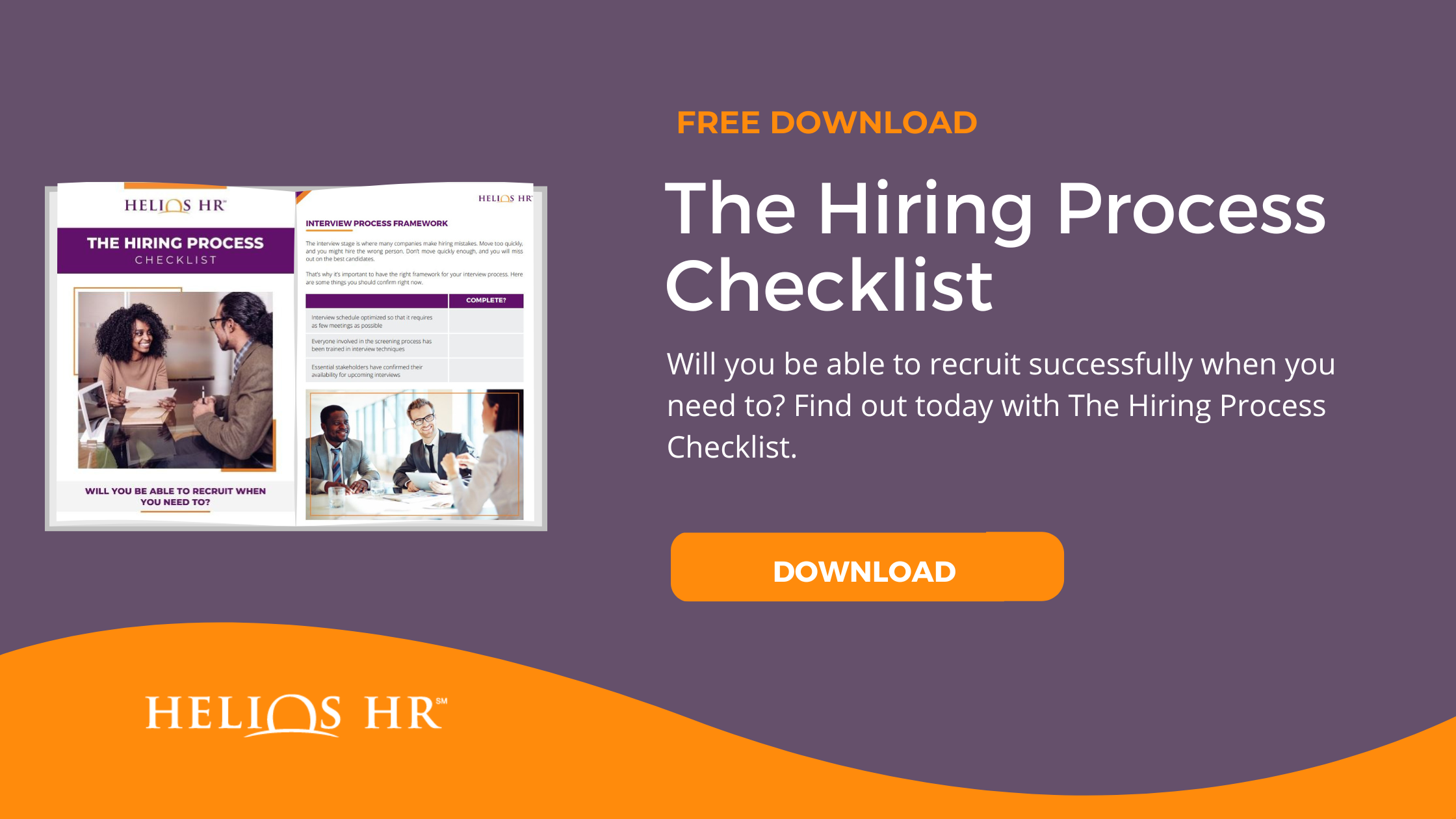By: Jennifer Chestnut on May 23rd, 2023
How to Speed Up the Hiring Process and Secure Top Talent
In a busy job market, great candidates often have multiple job offers to choose from. While salary, benefits, and career prospects all make a difference, the deciding factor is often speed. Whoever makes the first offer has the best chance of success.
But recruiting can be a slow process. You must ensure that you screen the candidate pool thoroughly before you make your final decision. Talent acquisition ends up becoming a constant balancing act: moving quickly enough to secure the best talent while being careful about picking the right person.
Let's take a look at how to speed up the hiring process without compromising quality.
Why it's important to speed up your hiring process
Throughout my career in recruiting, I have seen the market fluctuate. There have been years where employers had the luxury of taking their time and were flooded with tons of the best candidates. For my client's sake, I wish that were still the case! In today's market, typically, top talent will not wait around; they review the multiple offers they have been presented with and decide quickly.
I have these conversations a lot with my clients struggling to get excellent talent in the door quickly. Sure, I can provide recruiting services for you, but it is also imperative to take a step back and look at your existing processes for improvements.
What you have always done, or what worked for you once before, may no longer serve you in this market. If you lose talent to the competition, it should never be because of the candidate experience and the whole process you have in place – those are tangibles within your control!
When I'm doing a recruiting assessment for a client, I'm going to look at the whole picture to figure out what may need some attention to improve the existing function and candidate experience.
How to speed up the hiring process for a great candidate experience
Technology can help speed up the interview process—for example, recruitment software like an Applicant Tracking System (ATS) can screen applications quickly. But a lot of the delays are down to people, processes, and unnecessary delays.
Here are some tips for strengthening the recruitment process to gain efficiencies below.
1. Get the job description right
Does your organization have clear and enticing job descriptions? Being able to articulate what the work entails and what sets you apart as an employer of choice (your employer value proposition) is what will lure in your next hire. Often, we see job advertisements tweaked continually throughout the hiring process because they are not attracting qualified candidates with the skills the company actually needs.
2. Hire for the future
A good job description will get you on the right path, but if you take it a step further and determine a clear path to promotion or development opportunities, it communicates to your candidate that you are invested in their growth.
We often see companies hire for right now (which is important) without much thought to the future. This often leads to companies constantly restructuring and experiencing employee turnover. Are your recruiters and hiring managers able to articulate to job seekers that the career opportunities and professional development available at your organization?
3. Make applications easier
When was the last time you reviewed how long it takes to complete your employment application? These days, candidates are finding jobs through social media; they're applying online and via mobile devices. Do you know if your career page and application are mobile-friendly?
An application should only include information absolutely required. For instance, things such as references you can get later in the process when you know you have found the right candidate. When something simple like an application becomes too cumbersome and time-consuming, candidates drop off.
4. Work with experienced recruiters
Do you have solid and dedicated recruiters on your team who are constantly networking and doing outreach to hard-to-find talent? The "unicorns" are typically not candidates active on the job hunt, and so you need to be equipped with recruiters who can search for these candidates and begin to build relationships.
Building talent pools proactively will significantly speed up your hiring process. Are you recruiters equipped with technology to capture and engage these talent pools, and are they armed with information on what makes your company an employer of choice?
5. Get referrals from your network
Leverage your current employees' networks. Does your organization offer an employee referral bonus program? You should.
According to LinkedIn data, 88% of major employers say that employee referrals are the best sources of above-average candidates. Referrals also result in higher productivity, plus a retention rate that's 30% higher.
6. Streamline the interview Process
How many interviews is your organization putting candidates through? For junior to mid-level positions, often two interviews suffice—one with the hiring manager and team and perhaps a second with an internal client or next-level leader. For executives, sometimes three to four interviews may be appropriate. Much more than that, and you run the risk of losing top talent.
It is not so much that three interviews are too much; it is the risk of losing talent when these interviews take too long to schedule because of conflicting schedules. At the start of the process, be sure to do the following:
- Identify the interview team and how many interviews the process will entail.
- Communicate details of the position and critical skills to the hiring team, so everyone communicates the same message to the candidate and tries to identify skills in the candidates that match the company's needs. If you find candidates with eight out of the ten most essential requirements, is the team prepared to re-calibrate and make concessions?
- Have your teams block off interview days and times so that the process can move full steam ahead and not be "put off" by conflicting schedules.
- Make sure that each interview has a clear purpose and create relevant interview questions
- Schedule candidate debriefs immediately after interviews to determine the next steps – and include your recruiter in those conversations. It is helpful for them to hear the pros/cons of the candidate so they can continue to calibrate on the need.
VIrtual video interviews can be a great way to speed up the process too. They don't need to replace in-person interviews entirely, but they can help solve some scheduling issues.
7. Communicate with your candidates
If you have a strong candidate, be sure your recruiter or hiring manager communicates with them throughout the process. Even if you don't have any news, a follow-up can go a long way. Being transparent will help keep candidates engaged and set expectations.
8. Make an attractive offer
If you have strong recruiters on the team, they will have had conversations with your candidates from the start of the process and know what salary and benefits your ideal candidate expects.
Checking references often happens at the final stage, and I encourage employers to make an offer contingent upon good references. Often it can take references a couple of days to return phone calls and emails. Making a verbal offer first enables you to "hook" the candidate while finishing up the due diligence.
Conclusion
As you can see, executives need to empower their departments and equip them with the resources necessary to make efficient, effective hires without getting in the weeds. By setting up an infrastructure with efficient processes, clarity in roles and expectations for the hiring process, and effective communications, you will notice a big difference in your recruiting function.
Need some help to speed up your hiring process? Helios HR's RPO experts can help you build a strategy that attracts a winning team. Book a no-obligation consultation call today and find out how you can secure great talent.






